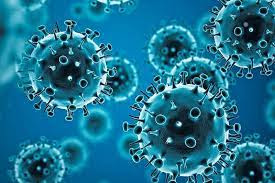I am a
nocturnal creature. Poetry, songs, words, or complete storylines come to me in
the wee hours of the night. But, by the time I go from bed to bathroom, from
coffee to computer, the muses quickly dissipate. I am often disappointed at the
attempt to recreate, restructure or reimagine what was authentic or powerful enough to wake me. Sleeping with my phone at my side helps. Messaging
myself, helps seize it and squeeze a semblance of meaning from the nighttime
missives.
And so, it was last night. I rose from
slumber with the jarring thought:
“What if this is it?”
The question followed an apocalyptic dream obviously
inspired by my research on the omicron variant of COVID-19. Reading about the coronavirus’ spike protein
and its unusually high number of mutations ignited my unconscious imagination.
In unrestricted slumber, the thought of a disease stronger and faster than
science became real. It was the end of times unlike what religion taught me as
a child. There was no heaven or hell, no “good or bad,” no saved and definitely
no savior.
We were all doomed.
Still in bed, I Googled “Literature
during the Spanish Flu.” Through my
limited research I read that there were few
books, movies, songs, or poems written explicitly about the 1918 flu pandemic
that killed between 50 to 100 million people.
Some historians say that the man-made pandemic, WWI,
was one reason for the pandemic’s literary blackout. They reasoned that tales of brutal trench warfare, the sheer cost of human life coupled with
the travesties of an unseen and largely misunderstood virus might have
overwhelmed the collective consciousness.
Still, it’s hard for me to
imagine there ever being a situation that creative people didn’t address. The
unfiltered mind goes to taboo places. They write, sing, or speak to outcomes
that make the masses quiver. They
release…not for effect but for freedom. If they don’t get it out; it consumes them,
stalls them, constipates their flow.
Thus is the curse of the
creatives.
Therefore, I allowed myself
to run with my dreamlike narrative:
“What if this is it? What
would I feel? What would I do?"
All the intricacies of my
working life became miniscule. In that state of mind, I released myself from
the ongoing fight against racism and inhumanity. The rise of white extremism or
“black power” became inconsequential. What was, what is, were mute points. I no
longer cared about politics or political crazies. The return of Trump held no
threat. Dialogue about the “unvaxxed vs the vaxxed” became unimportant,
inconsequential. It was too late for the blame game.
Being a “creative,” I’d use
my remaining time to speak to LOVE. I’d make sure the people I truly care
about, know I love them, despite our perhaps artificial differences. I’d find
the daughters I’ve lost to a broken union. I wouldn’t beg for understanding or
absolution; I’d simply say, “you have been and will always be loved.”
I was comforted by the creative liberty of release. Freed from the ingrained fear of celestial punishment for deeds or misdeeds, I was simply able to be…me. The mere thought of uncontrollable, unmanageable, unstoppable death made me drill down to my core values and basic principles. For brief, fleeting pre-dawn moments, I was released from the perceived ramifications of wrong choices, wrong moves, or false friends. One succinct, pointed question about death paved a pathway for living:
“What if this is it?”
*********
Sylvester Brown Jr. is a St. Louis writer and author of three books: When We Listen: Recognizing the Potential of Urban Youth (2019), White Castles with Jesus & Uncle Ray at the Used Tire Shop (2021) and his first novel, Gateway Gas (2021). Sylvester is also the Deaconess Fellow with the St. Louis American newspaper writing about COVID-19's impact on the Black community.


Comments